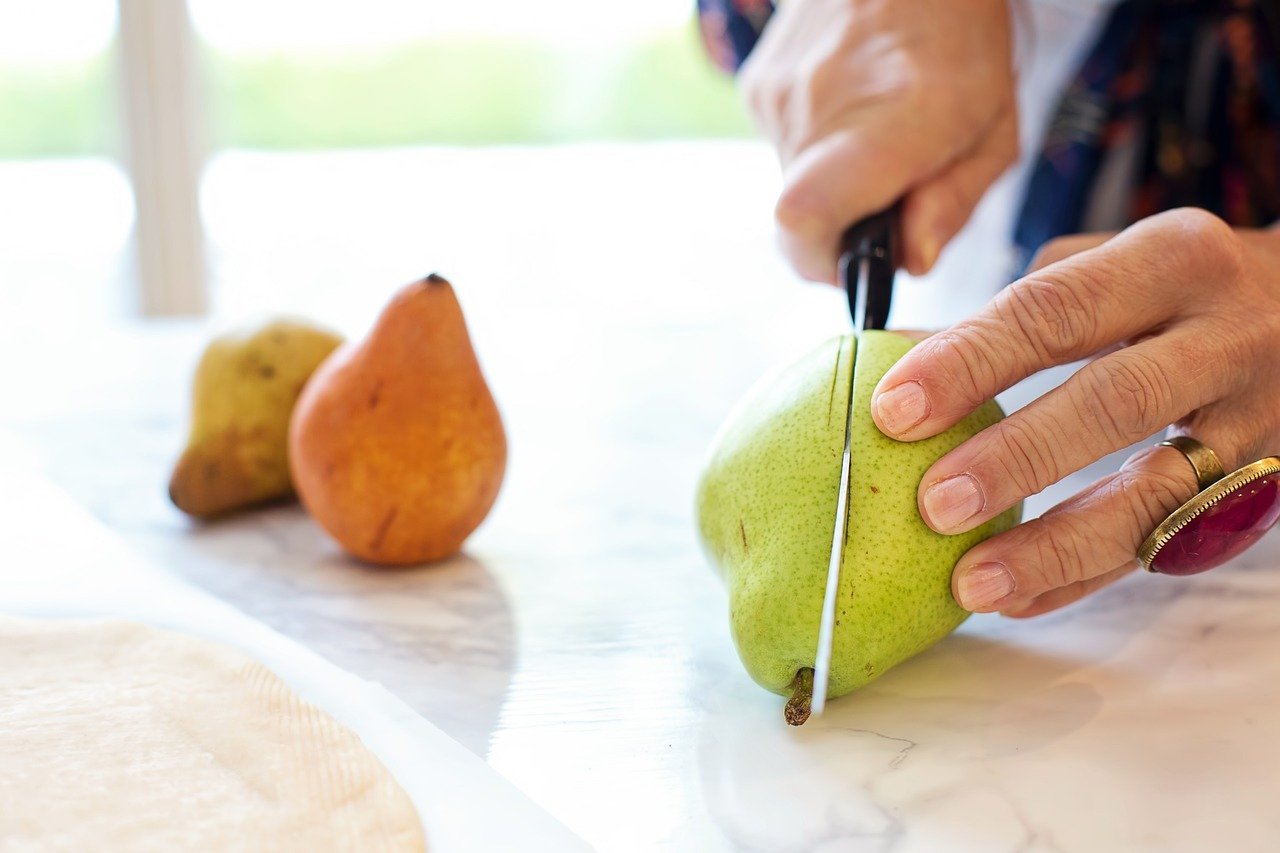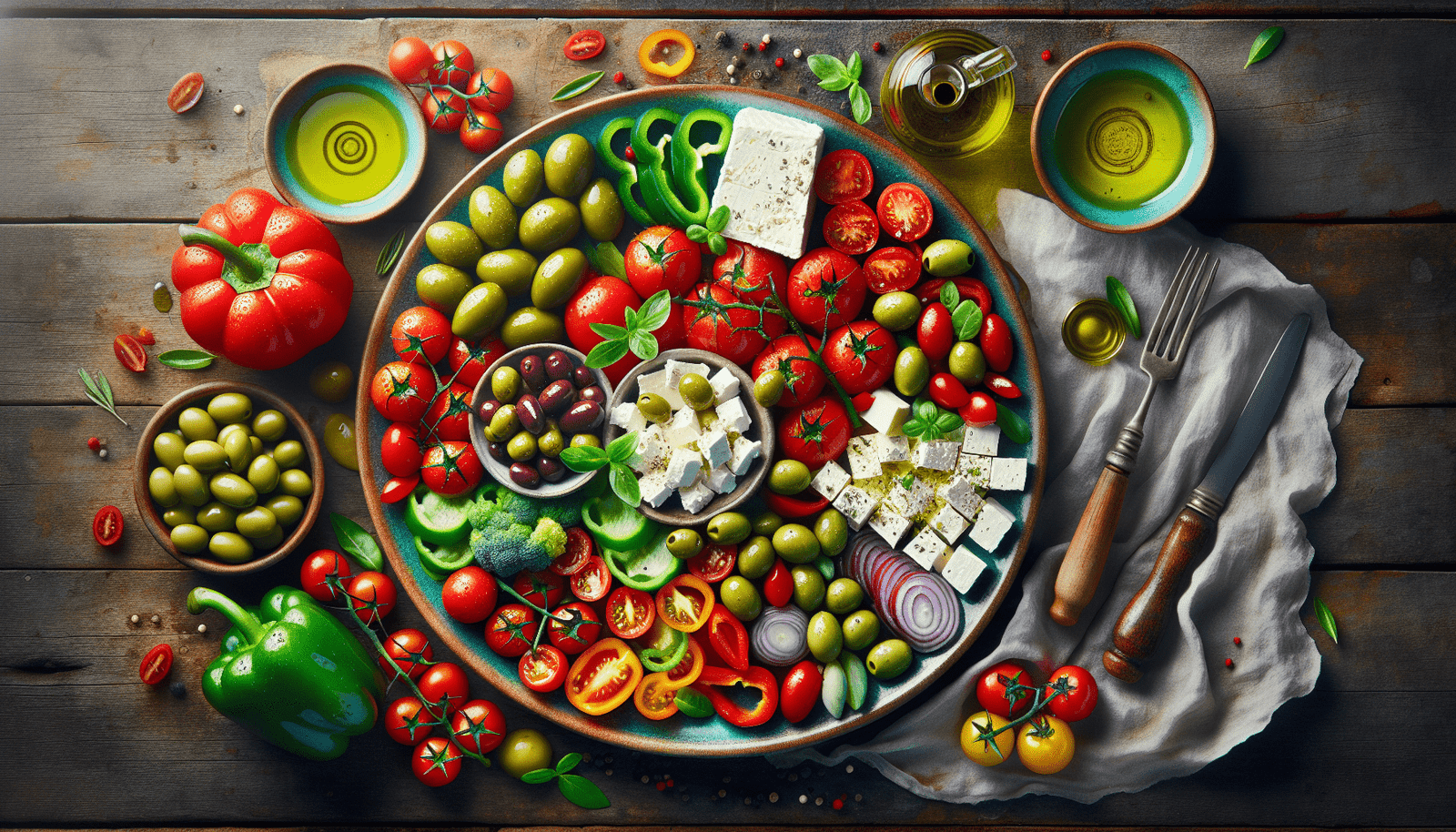How can you start the Mediterranean diet easily? If you’ve ever thought about adopting a healthier eating pattern that is both flavorful and satisfying, the Mediterranean diet could be the perfect fit for you. It emphasizes fresh, whole foods that nourish your body, aligning nutrition with enjoyment. Let’s go through some simple steps that you can take to begin this journey effortlessly.

Understanding the Mediterranean Diet
The Mediterranean diet is more than just a meal plan; it’s a way of life inspired by the eating habits of countries bordering the Mediterranean Sea, such as Greece, Italy, and Spain. This diet focuses on plant-based foods, healthy fats, whole grains, and lean proteins. You might find it appealing due to its emphasis on fresh ingredients and leisurely meals enjoyed with family and friends.
Key Components of the Diet
To get started, familiarize yourself with the core components of the Mediterranean diet:
| Food Group | Recommended Foods | Quantity/Guidelines |
|---|---|---|
| Fruits | Apples, oranges, berries, bananas | Eat daily |
| Vegetables | Spinach, tomatoes, carrots, peppers | Aim for a variety of colors daily |
| Whole grains | Brown rice, quinoa, whole grain bread | Choose whole grains over refined ones |
| Healthy fats | Olive oil, nuts, seeds | Use olive oil as your main cooking fat |
| Lean proteins | Fish, poultry, legumes | Include fish in meals at least twice a week; limit red meat |
| Dairy | Yogurt, cheese | Choose low-fat options in moderation |
| Herbs & Spices | Basil, oregano, garlic | Use to flavor meals instead of salt |
This simple table summarizes the essential components of the Mediterranean diet. It’s all about enjoying a variety of delicious foods that are both nutritious and satisfying.
Focusing on Whole Foods
One of the first steps you can take in adopting the Mediterranean diet is to shift your focus from processed foods to whole foods. Whole foods are those that are minimally processed and free of artificial ingredients or preservatives.
What Are Whole Foods?
Whole foods include fresh fruits, vegetables, whole grains, nuts, seeds, and lean proteins. They are packed with nutrients and help you feel more satisfied after meals compared to their processed counterparts.
By choosing whole foods, you not only gain health benefits but also enjoy vibrant flavors and textures that enhance your meals. Stock your pantry and refrigerator with these wholesome options, making it easier to create delicious dishes.
Incorporating Healthy Fats
Next, let’s talk about fats. The Mediterranean diet encourages the use of healthy fats, particularly olive oil, which is a staple in Mediterranean cooking.
Benefits of Healthy Fats
Healthy fats play a crucial role in your diet. They provide energy, help absorb fat-soluble vitamins (like A, D, E, and K), and support cell growth. Olive oil, for instance, is rich in monounsaturated fats, which can lower bad cholesterol levels.
You can easily incorporate these healthy fats into your meals. Use olive oil as your primary cooking fat or drizzle it over salads and vegetables for added flavor. Nuts and seeds are also excellent choices for snacking or adding crunch to your dishes.
Eating More Fruits and Vegetables
Fruits and vegetables are essential components of the Mediterranean diet. They are packed with vitamins, minerals, and antioxidants that nourish your body.
Tips for Adding More Produce to Your Diet
- Snack on Fruits and Veggies: Keep fresh fruits and cut-up vegetables handy for quick snacks.
- Add to Every Meal: Aim to include at least one serving of fruits or vegetables in each meal. For breakfast, you might add berries to your yogurt or have a side of sautéed spinach with your eggs.
- Experiment with Colors: Choose a range of colors to ensure a variety of nutrients in your diet. Each color often represents different vitamins and minerals.
By making fruits and vegetables a priority, you’ll discover countless ways to enhance your meals with natural flavors.

Choosing Whole Grains
Whole grains are another key aspect of the Mediterranean diet. They are more nutritious than refined grains and can keep you feeling fuller for longer.
Whole Grains to Include in Your Diet
Switching to whole grains doesn’t have to be complicated. Here are some great options:
- Brown Rice: A versatile base for stir-fries and grain bowls.
- Quinoa: A protein-rich grain that’s perfect as a side dish or in salads.
- Whole Wheat Pasta: Swap refined pasta for whole wheat to add fiber and nutrients.
- Barley: Great in soups and stews for added texture and nutrition.
You can find a variety of whole grain products at your local grocery store. Start by substituting one item at a time until it becomes second nature to reach for whole grains.
Making Lean Proteins a Priority
Protein is essential for your body, and the Mediterranean diet encourages you to choose lean sources.
Healthy Protein Sources
Incorporate the following protein sources into your diet:
- Fish: Fatty fish like salmon and sardines provide omega-3 fatty acids that are beneficial for heart health.
- Poultry: Chicken and turkey are great sources of lean protein.
- Legumes: Lentils, chickpeas, and beans are high in protein and fiber, making them filling options.
- Nuts and Seeds: They not only add protein but also healthy fats to your diet.
By focusing on these lean protein sources, you can create balanced meals that sustain your energy levels throughout the day.

Cooking at Home
Cooking at home is a fantastic way to embrace the Mediterranean diet. It gives you control over the ingredients, ensuring that you’re making healthier choices.
Benefits of Home Cooking
- Healthier Meals: You can choose fresh, wholesome ingredients and avoid unhealthy additives commonly found in restaurant food.
- Cost-Effective: Preparing meals at home can save you money compared to dining out.
- Meal Control: You can control portion sizes and experiment with flavors that you enjoy.
Incorporate meal prep into your routine, making it easier to whip up Mediterranean meals. Preparing key ingredients like roasted vegetables, quinoa, or cooked proteins at the beginning of the week can simplify your daily cooking.
Enjoying the Eating Experience
The Mediterranean diet values the social aspect of food. Meals are often enjoyed with family or friends, promoting a sense of community and relaxation.
Creating a Positive Meal Environment
- Slow Down: Take your time while eating, savoring each bite to enjoy the flavors.
- Gather Loved Ones: Share meals with family or friends to enhance the experience and foster connections.
- Set the Mood: Create a pleasant dining environment with simple touches like lighting a candle or playing soft music.
By making mealtimes special, you can transform the act of eating into an enjoyable ritual rather than a hurried task.

Hydration with Mediterranean Beverages
While food is a significant part of the Mediterranean lifestyle, beverages are important too. Staying hydrated is essential for your overall health.
Healthy Beverage Choices
- Water: The primary beverage of choice. Aim to drink plenty of water throughout the day to stay hydrated.
- Herbal Teas: These can be a soothing and flavorful option without added sugar.
- Coffee: Enjoyed in moderation, coffee can be part of your day. Opt for it black or with a splash of milk.
- Red Wine: Moderate consumption of red wine is often noted in the Mediterranean diet but should be approached thoughtfully.
Incorporate these healthy beverages into your routine to keep hydration interesting.
Balancing Indulgence and Health
An essential part of the Mediterranean diet is finding a balance between enjoying food and maintaining health. You don’t have to eliminate your favorite treats entirely.
Treating Yourself Mindfully
- Listen to Your Body: Notice when you’re satisfied and stop eating, even if there’s still food left on your plate.
- Savor Special Treats: Opt for high-quality versions of your favorite indulgences, and enjoy them mindfully rather than mindlessly snacking.
- Plan Celebrations: Use food as a way to celebrate life’s moments but keep portion sizes in check.
By enjoying treats in moderation and being mindful of your choices, you can maintain a healthy relationship with food.

Grocery Shopping Tips
When you’re ready to start implementing the Mediterranean diet, grocery shopping is an important step. It’s where you can choose the right ingredients that align with your new eating patterns.
Smart Shopping Strategies
- Plan Your Meals: Create a weekly meal plan to guide your shopping list. This helps in avoiding impulse buys.
- Shop the Perimeter: Most whole foods are found around the edges of the grocery store—fruits, vegetables, meats, and dairy—while processed foods tend to be in the center aisles.
- Read Labels: Familiarize yourself with reading nutrition labels to choose minimally processed options.
These strategies can make your grocery trips more efficient and enjoyable, setting you up for success.
Embracing a Mediterranean Lifestyle
Lastly, it’s important to recognize that the Mediterranean diet is not just about food; it’s about embracing a lifestyle that includes physical activity, relaxation, and connection with others.
Incorporating Movement
Make it a priority to include physical activity in your daily routine, whether it’s walking, biking, dancing, or any movement that you enjoy. Continuous movement can enhance the benefits of the Mediterranean diet and improve your overall well-being.
Staying Connected
Seek out opportunities to share meals and experiences with others. The Mediterranean lifestyle encourages community connections, so engage with loved ones no matter how busy life gets.
Conclusion
Starting the Mediterranean diet doesn’t have to be overwhelming. By following these simple steps, you can gradually incorporate its delicious and wholesome elements into your life. Focus on whole foods, enjoy cooking at home, cherish mealtimes with loved ones, and embrace an active lifestyle. Soon, you’ll find that this way of eating enriches both your health and your culinary experience. Enjoy the journey to better health through the flavors and traditions of the Mediterranean!


